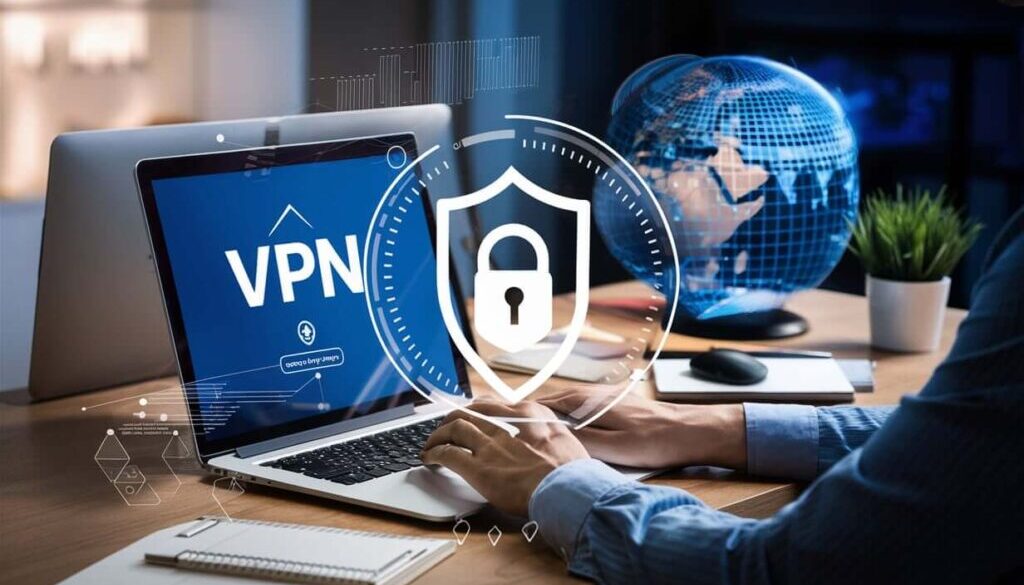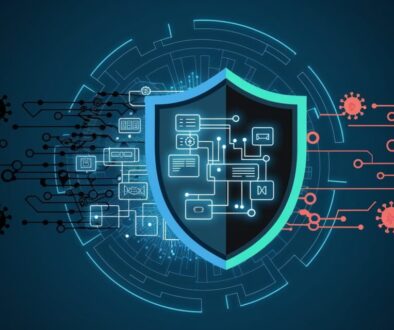Benefits of VPN Tunnels for Secure Remote Connections
Today, VPN (Virtual Private Network) tunnels have become essential for securing remote connections. As more individuals and organizations rely on digital communication and remote access, robust security measures are crucial. The benefits of VPN tunnels for secure remote connections are numerous, as they provide a safe pathway for data transmission, safeguarding sensitive information from potential threats. This article discusses these benefits while highlighting their role in enhancing data security, protecting corporate resources, anonymizing user activity, and supporting remote work. By understanding these benefits, you can better appreciate why integrating VPN solutions is vital for maintaining a secure digital environment.
Enhanced Data Encryption
Protecting Data in Transit
VPN tunnels encrypt data transmitted over the internet by employing advanced encryption protocols such as AES-256 to ensure confidentiality. This encryption safeguards data from unauthorized access during transmission, making it nearly impossible for cybercriminals to intercept or decode sensitive information. For example, AES-256 encryption, widely used by government agencies and financial institutions, provides a high-security level, making it the preferred choice for VPN services.
Mitigating Risks of Data Interception
VPNs prevent unauthorized access and data sniffing by creating a secure, encrypted connection between the user and the destination server. Data interception is a common threat, where attackers capture and read data transmitted over unsecured networks. A notable example is the 2018 Facebook data breach, where data was intercepted due to inadequate security measures. VPNs mitigate such risks by encrypting the data, rendering it unreadable to potential attackers.
Ensuring Privacy in Public Networks
Public Wi-Fi networks are inherently insecure, making them a prime target for cyberattacks. VPNs provide a secure connection even when using these unsecured networks, ensuring that personal and sensitive information remains protected. By encrypting data and masking IP addresses, VPNs shield users from potential threats and unauthorized access, thus maintaining privacy and security on public networks.
Secured Access to Corporate Resources
Remote Access to Internal Systems
VPN tunnels enable employees to securely access company resources from remote locations, creating a virtual private network that extends the corporate network to remote users. This secure access is crucial for maintaining productivity and ensuring that sensitive information remains protected from unauthorized access. For instance, during the COVID-19 pandemic, many organizations relied on VPNs to facilitate remote work while safeguarding their internal systems.
Protecting Sensitive Information
VPNs safeguard sensitive corporate data by encrypting it, ensuring it remains confidential even when transmitted over the internet. This protection is vital for preventing data breaches and unauthorized access. A case study involving a significant financial institution demonstrated how VPNs helped protect client data from a potential breach, reinforcing the importance of encryption in maintaining data security.
Streamlining Secure Collaboration
VPNs facilitate secure collaboration among remote teams by providing encrypted access to shared resources and corporate tools. This ensures that team members can work together effectively while maintaining the confidentiality and integrity of their communications. Securely sharing files and accessing internal systems enhances productivity and collaboration without compromising security.
Anonymizing User Activity
Hiding IP Addresses
VPNs mask users’ IP, enhancing anonymity and preventing third parties from tracking online activities. This IP masking is crucial for protecting user privacy and avoiding targeted advertisements or potential cyberattacks. By concealing the user’s address, online activities remain private and secure.
Bypassing Geo-Restrictions
VPNs enable users to access content and services restricted by geographic location by routing traffic through servers in different regions. This capability is beneficial for accessing region-specific content, such as streaming services or websites that may be blocked in certain areas. For example, users can access content available only in the US while in another country, expanding their access to digital resources.
Reducing Tracking and Profiling
VPNs reduce the risk of online tracking and profiling by obscuring users’ Iusers”IPusers’ssesrypting data. This minimization of tracking helps prevent companies from collecting personal information and building detailed user profiles. By using a VPN, individuals can protect their privacy and reduce the likelihood of their online activities being monitored.
Enhancing Remote Work Security
Securing Remote Employee Connections
VPNs protect remote workers from cyber threats by creating a secure connection between their devices and the corporate network. This protection is essential for maintaining the confidentiality of sensitive information and preventing unauthorized access. For example, a remote employee accessing company resources over a public Wi-Fi network would benefit from the encryption and security provided by a VPN.
Preventing Unauthorized Access to Corporate Networks
VPNs prevent unauthorized access to corporate networks by requiring secure authentication and encrypting data. This security measure helps protect against potential breaches and unauthorized access to sensitive information. VPNs commonly use multi-factor authentication and robust encryption protocols to control access and enhance security.
Ensuring Compliance with Security Policies
VPNs assist organizations in complying with internal and external security policies by providing a secure method for remote access and data transmission. This compliance is crucial for meeting regulatory requirements and maintaining data protection standards. By integrating VPN solutions, organizations can ensure that their remote work practices adhere to established security policies and regulations.
Cost-Effective Security Solution
Affordable Security for Small Businesses
VPNs offer a cost-effective security solution for small to medium-sized enterprises. They provide robust protection without expensive hardware or infrastructure. VPNs are relatively affordable compared to other security measures and offer significant data protection and privacy value.
Reducing the Need for Expensive Hardware
By utilizing virtual security solutions, such as VPNs, organizations can reduce the need for additional hardware. This cost savings is achieved through cloud-based services and software solutions that provide adequate security without the associated physical infrastructure costs.
Scalable Security for Growing Organizations
VPN solutions are scalable, making them suitable for organizations of all sizes. As businesses grow, their security needs evolve, and VPNs can adapt to these changes, providing scalable protection that aligns with organizational growth. This flexibility ensures that security measures remain effective as the organization expands.
Choosing the Right VPN Service
Evaluating Security Features
When selecting a VPN service, it is essential to evaluate key security features, such as encryption protocols, authentication methods, and privacy policies. Comparing these features among leading VPN providers helps ensure that the chosen service meets security requirements and provides adequate protection.
Assessing Performance and Speed
VPN performance and speed are critical factors in user experience. A high-performance VPN should offer fast connection speeds and minimal latency, ensuring smooth and efficient use. Tips for selecting a VPN with optimal performance include checking speed test results and user reviews.
Reviewing Customer Support and Reliability
Reliable customer support is crucial for addressing any issues with VPN services. When choosing a VPN provider, review the support options available, such as live chat, email, and phone support, to ensure that assistance is readily accessible when needed.
Conclusion
VPN tunnels provide numerous benefits for secure remote connections, including enhanced data encryption, protected access to corporate resources, anonymized user activity, and cost-effective security solutions. By employing VPNs, individuals and organizations can safeguard their digital communications, prevent unauthorized access, and maintain privacy. This article has explored the critical advantages of using VPN tunnels and highlighted their importance today. Implementing VPN solutions is a proactive step towards achieving robust security and ensuring a secure remote work environment.
Call to Action
We invite you to subscribe to our monthly newsletter and follow us on our Facebook, X, and Pinterest channels for more insights and updates on cybersecurity trends and best practices. Our blog provides valuable information and resources to help you stay informed and prepared against evolving threats.
Engage with our community to share knowledge, ask questions, and stay connected with industry developments. Visit our About Us page to learn more about who we are and what we do. Furthermore, please reach out through our contact page if you have any questions. You can also explore our services to discover how we can help enhance your security posture.
Frequently Asked Questions
A VPN tunnel is an encrypted connection between your device and a VPN server. It works by encapsulating your internet traffic in a secure “tunnel,” hiding your IP address and encrypting data to protect it from hackers, ISPs, and surveillance while ensuring privacy and anonymity online.
VPNs use advanced encryption protocols, such as AES-256, to encrypt data transmitted over the internet. This encryption protects the data from being intercepted or accessed by unauthorized parties during transmission.
Yes, VPNs can bypass geo-restrictions by routing internet traffic through servers in different locations. This allows users to access content and services that may be restricted based on geographic location.
When selecting a VPN service, consider security features (encryption protocols, authentication methods), performance and speed, customer support, and the provider.
While VPNs offer significant security benefits, potential downsides include reduced internet speeds due to encryption overhead and possible compatibility issues with certain websites or applications. To mitigate these issues, choosing a high-quality VPN provider is important.




